What is an Eastern Bristlebird ? Find out here.
I was fortunate to be invited to help extract Eastern Bristlebirds from Howe Flat nearby the NSW-Vic border. An active fire was threatening their home and a number of government departments put together a plan to catch 15 – 20 birds for safe keeping at the Melb Zoo. There was a small window to get in and out before the fire arrived at Howe Flat.
There was a field team of around a dozen to catch the birds but many more people in the background working on transport food and other resources required to keep the team safe and fed. We stayed at school camp called Marshmead.
But first, we had to get to Mallacoota quickly and what better way than to call in the Singapore Air Force.
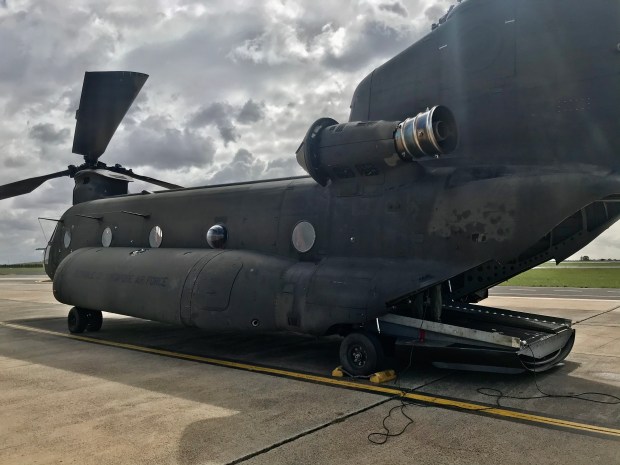
The Singapore Air Force were helping out with the eastern Australian fires and as the Victorian Government saw the Extraction of the Bristlebirds as a fire incident issue, a Singapore Air Force Chinook became our means of transport.

Inside the Chinook with our packs and boxes for transporting the birds. The back section of the Chinook was open the entire trip. It was loud and vibrated continuously. The seating was not very comfortable and there was no inflight movie but we all arrived safely.

The Chinook flight plan

Our destination was Marshmeade and after landing in a cleared area we had to sort out our “stuff”

This is a photo of a small section of Marshmead and it gives an indication of the nearby fire that was approaching.
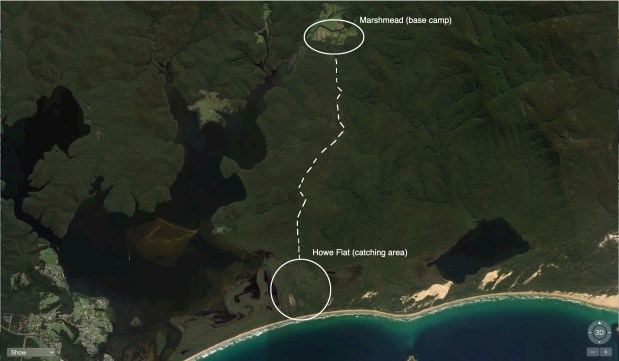
The area where the birds live is Howe Flat. It was around 30 minutes from base camp by four wheel drive. We drove there each day before sunrise to set the nets.
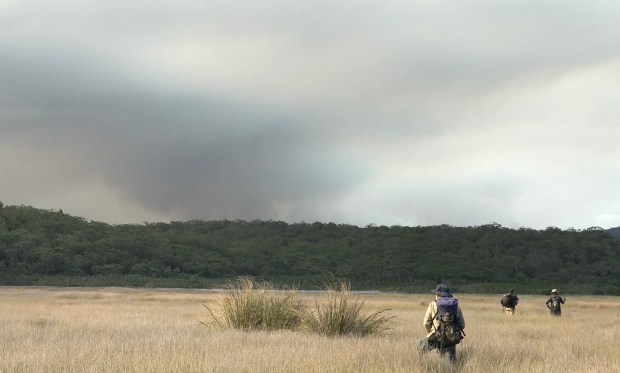
The habitat at Howe Flat is varied but this shot shows how close the fire was. As I type this habitat may have already been lost.

The birds were intended to be caught in mist nets. Above is one mist net ready to do its work. A bluetooth speaker is placed on one or both sides of the net and the Bristlebird call is broadcast to attract the wild birds.
The strategy worked 15 times.
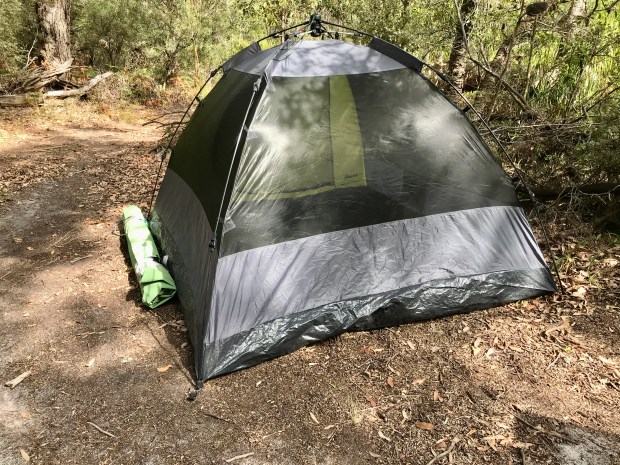
This tent was used as a processing area for captured birds. Some of you may be bird researchers and would know what an “oops” is. Processing birds in tent avoided birds from escaping from nervous hands.

And this is an Eastern Bristlebird. It is estimated there are around 180 individuals in Howe Flat and subsequently Victoria.

With the Birds in boxes, they are prepared for transporting.

Experienced people from Zoos Victoria were present to ensure the birds were cared for whilst being transported. The birds were immediately taken by boat back to Mallacoota and then to Melbourne. A Zoos Victoria employee travelled back to Melbourne with the birds.

As it happens, Bristlebirds were not the only birds requiring assistance. Percival the Pelican also required some help due to a fishing hook in his bill.
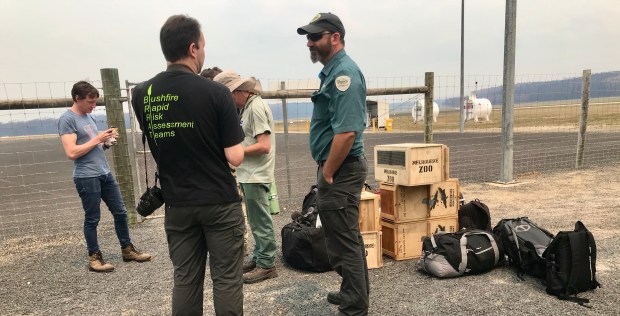
Despite the efforts of fire fighters, the time came when the team had to move out of the area. Above are some of the team awaiting a plane at the Mallacoota Airport to take them home.

However, before our departure, the Governor of Victoria, Linda Dessau AC arrived with her team to visit Mallacoota. She knew of the extraction project and was very pleased to meet our team.
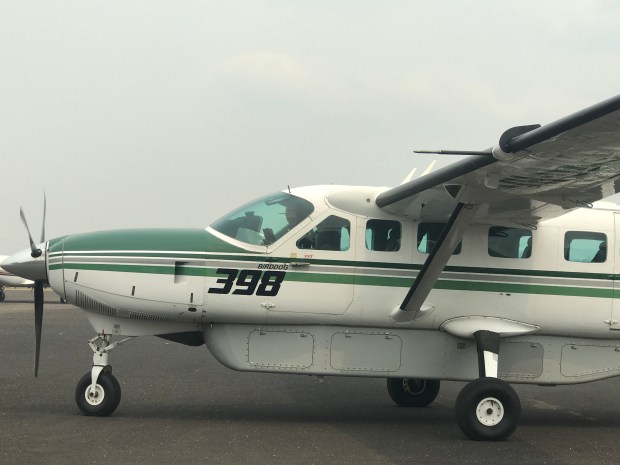
Our plane arrived to take us home.

We arrived safely at Essendon Airport as a result of our trusty pilot Dave. But Dave not only flew some of the team back to Melbourne, it turns out Dave also transported the captured 15 birds. Well done Dave.
The whole exercise of being involved in this Extraction of Eastern Bristlebirds was extraordinary and exciting. It was hard work with early starts and most of the team were anxious. Catching wild birds in habitat like Howe Flat is not easy and there was a lot expected of a small group of people, especially those catching the birds.
There were dozens of people involved in this project, many of who were scattered across the state, making phone calls to arrange support, obtaining permits, organising food and much more. Fire fighters kept us safe and held off the fire from Howe Flat as best they could whilst we worked.
The team was welcomed at Mallacoota and Marshmead and generously supported by everyone we met. This exercise was a first for the State and whilst it’s hoped it will not be needed in the future for other species, the chances are it will.
Good stuff, Mal, and good to see a well known Parks Vic scientist in there. Valuable work.
Mal, fantastic to have had you join an amazing team of highly skilled and passionate Birdos for the extraction. The team was led by DELWP and Zoos Victoria along with participants from Parks Victoria, Monash and Woolongong Universities, Currumbin Sanctuary and Birdlife. All 15 birds are with Melbourne Zoos and are doing well in their new enclosures. Fire activity has increased significantly since we left on Thursday 6.2.20 and we are now relying on luck to save their habitat – the right winds and lots of rain are possible over this weekend. Marc
That’s fantastic Mal, brilliant. So sad that it’s needed. If their habitat stays safe will all/some be returned?
Kim
>